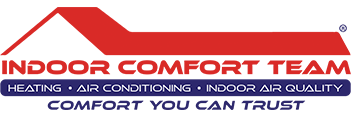As your furnace burns fuel to warm your space, the furnace filter works to improve air quality by trapping allergens and dust. To select the right furnace filter for your home or business in St. Louis, MO, you have several factors to consider. This guide explains why it’s important to choose the right type, size and model to deliver maximum efficiency.
Understanding Your HVAC Model
When shopping for a furnace filter, consider its compatibility with other systems in your home or business. Understand your HVAC make, model and design before you search for the appropriate filter. A compatible fit will keep your system from losing energy or allowing dirt into your building.
Choosing a Filter Size
Filters come in different sizes for different furnace models and designs. Getting the right fit is crucial for the efficient operation of your unit because a filter that fits snuggly prevents air from leaking through the sides, which saves energy. You can find the required filter size inside your filter cabinet door.
Finding the Best Filter Thickness
A thicker furnace filter can prevent wear and tear due to trapped particles and can last longer than its thinner counterparts. However, the thickness of the filter you need depends on your unit’s configurations. You can always consult with your HVAC technician to get the right measurements.
Understanding MERV Ratings
MERV stands for Minimum Efficiency Reporting Value and is a scale that determines how many particles can pass through a filter. Most filters have a MERV rating of 1 to 12, and the general rule of thumb is that the higher the MERV rating, the more efficient a filter is at trapping particles.
The choice of filter rating depends on the indoor air quality that you need. If you have people in your building who have respiratory problems or who live in a dusty environment, then aim for a filter with a MERV rating of 12 or higher.
Selecting the Best Type of Filter
The types of filters available in the market include fiberglass, washable and pleated air filters. To choose the right furnace filter for your HVAC system, check all the features that these filters offer.
Fiberglass air filters are great for protecting your unit from dust and particles, but they don’t improve air quality. They have a MERV rating of 2–3 and are inexpensive and disposable. Washable filters require regular cleaning to maintain their functional values and have a MERV rating of 1–4.
Pleated filters have polyester construction with a pleated surface to increase their capture efficiency. They have a MERV rating of 6–13 and come as either disposable or electrostatic, with the former offering excellent air filtration capabilities. Generally, pleated filters are more efficient in protecting your heating and cooling system and promoting the air quality of your building via excellent airflow.
Considering How Long the Filter Will Last
Different filters have different lifespans and replacement schedules. Consult with an HVAC technician for guidance about choosing what you need to suit the environment and location of your building.
Selecting a long-lasting furnace filter eliminates the costs that come with frequent replacements. Reusable filters are more desirable because they only require adequate cleaning before reuse.
Meeting the Needs of Your Building and Its Occupants
When choosing a filter, consider the pets you keep, the occupants’ respiratory conditions and whether any individuals smoke. Environments that have a lot of dust, pollen and other pollutants require furnace filters with high filtration capabilities. For efficiency, consider an electrostatic filter that’s highly efficient in trapping particles and promoting excellent airflow.
If you have shopped around for a filter, you have come across different options with different prices. Choosing the right furnace filter helps protect your air quality and maintains system efficiency. If you’re looking for excellent heating repairs and indoor air quality solutions, contact us today at Indoor Comfort Team, and we will be glad to assist.
Image provided by iStock





